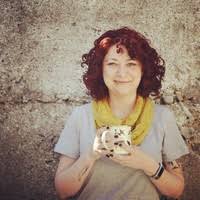Cat completed her PhD in 2015 – here she tells us what is is like to be a postgraduate student on the spectrum and shares her advice for other students undertaking postgraduate study.
Background
I always thought I was a terrible student. I failed my Leaving Cert and had no expectation that I’d get a degree, let alone a PhD. I realised that I was fascinated by psychology, so I decided to try out attending college as a mature student. It was during that degree that I received my autism diagnosis and discovered that I was not a terrible student – I just learned differently and had some pretty specific sensory needs.
As an undergrad, I started working as a Research Assistant and realised that I loved research. I finished my degree in Trinity and stayed on to do a PhD by research that focused on autism and language. It was a struggle because I was just learning to understand what it meant to be autistic, but I had wonderful supports from an occupational therapist and through my supervisor. It was a huge amount of work and stressful at times, but I am very pleased to have completed my PhD.
Practical tips
Take advantage of any and all supports that you can. Occupational therapy made a massive difference to me, but for others it might be assistive tech or counselling. Support is available, so take it!
Keep a daybook (like a daily planner or diary). You will be busy – sometimes incredibly busy. Executive dysfunction meant that I had a tough time planning my days. I started keep a daybook where I wrote down everything I planned to do in a day and ticking things off the list in the evening. Initially, I hugely overestimated how much I could get done in a day. Keeping note meant that I could more realistically plan my time.
Figure out the environment that suits you. People often assume that a quiet library or tidy desk are essential to get work done. That’s not the case for my chaotic brain! Try out different work environments to see which suits you best. You may need white noise or people coming and going to find your flow.
Reach out to people who have similar experiences. There are plenty of autistic folk in academia and working their way through postgrads. It can be really helpful to share tips or just have a collective moan! Perhaps you can link in with autistic postgrads in UCC or online.
Take breaks. There is a lot of pressure on postgrads and that can mean that you feel you should give all of your time to your work. If you have a tendency to hyperfocus and difficulty planning, this can mean that meals are easily skipped and sleep is missed. Factor breaks into your work day and allow yourself time off. You’ll do better work if you’re refreshed.
Additional information and links
Watch Cat chat about her experiences in higher education and employment in this video podcast recorded for World Autism Day 2021.
About the author
Dr Cat Hughes is the Research Communications Manager for Autistica, a UK based autism charity. She is a proud Dubliner and studied Psychology in Trinity College Dublin as a mature student, going on to complete her PhD in the field of autism.


 Back
Back 